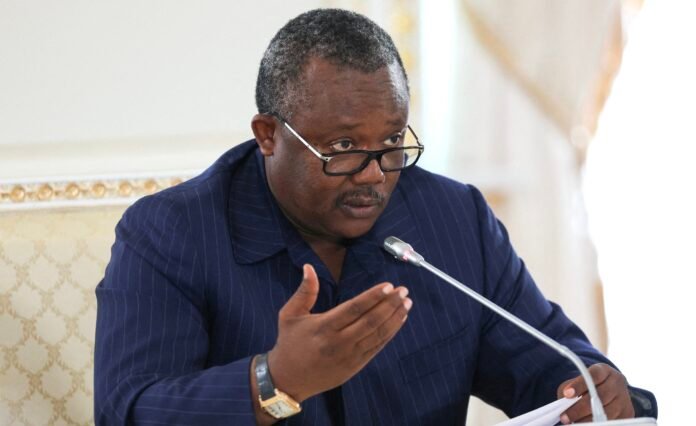President Umaro Sissoco Embalo is preparing for a high-stakes election on November 23, hoping to secure a second term and become the first leader in Guinea-Bissau to win re-election in nearly 30 years. Yet his first term has unfolded against a backdrop of persistent instability in a nation long marked by coups, contested mandates, and the influence of international drug networks.
Since assuming office in 2020, Embalo has survived several alleged attempts to remove him. The most dramatic occurred in 2022, when intense gunfire erupted near the government palace while he was meeting with cabinet ministers. His administration has continued to report various plots against the presidency, underscoring the fragility of political institutions in the country of about two million residents.
A Presidency Under Constant Challenge
Embalo’s legitimacy has been frequently questioned. Opposition groups have never fully accepted the 2019 election results, arguing that he did not rightfully win the run-off. More recently, critics insist he has exceeded the constitutional end of his term, a claim the president rejects.
His prospects of victory this year are bolstered by the exclusion of his strongest rival, former prime minister Domingos Simões Pereira, who was barred from running. Pereira’s disqualification reshapes the electoral landscape in a nation where political contests have historically been turbulent and deeply personal.
Development Goals Face Steep Obstacles
If re-elected, Embalo will confront daunting social and economic challenges. Guinea-Bissau remains one of the world’s poorest countries, highly dependent on cashew exports vulnerable to global price swings. Embalo has pledged to overhaul education, healthcare, and infrastructure—areas long neglected in the former Portuguese colony.
There have been some signs of progress, particularly in public works and electricity supply, says Vincent Foucher, a senior research fellow at France’s National Centre for Scientific Research. However, he cautions that improvements in physical infrastructure do not automatically translate into effective governance.
“Running an efficient state is about more than hardware,” Foucher noted. “It is about governing.”
A Volatile Political Career
Embalo’s rise has mirrored the volatility of the country he leads. Before winning the presidency, he served as a minister and adviser in previous governments. His appointment as prime minister by then-president José Mário Vaz in 2016 was short-lived, lasting a little over a year. Vaz went on to dismiss seven prime ministers during his tenure, reflecting the chronic political infighting that has plagued the nation.
The aftermath of the 2019 election further destabilized the country. Pereira challenged the results, and the 2022 attempted coup was followed by armed confrontations in Bissau the following year. In response, Embalo dissolved parliament, leaving Guinea-Bissau without a functioning legislature for more than a year.
Only last month, the military announced yet another alleged plot to topple the government. Several senior officers were arrested, adding to the uncertainty surrounding the upcoming vote.
Cocaine Traffic Surges Through the Country
Amid political disorder, Guinea-Bissau has continued to serve as a central hub in the trans-Atlantic cocaine trade. Traffickers use West Africa as a transit point for shipping drugs from South America to Europe, and analysts say activity is again rising sharply.
In one of the country’s largest recent seizures, authorities intercepted 2.63 tons of cocaine last September from a plane arriving from Venezuela. A report released in August by the Global Initiative Against Transnational Organized Crime warned that the illicit market in Guinea-Bissau “is booming once again” and may be more lucrative than ever.
Economic Prospects and Foreign Investment
Despite the turmoil, international financial projections show moderate optimism. The International Monetary Fund expects Guinea-Bissau’s economy to grow by 5.1% this year. Embalo has also highlighted the country’s untapped mineral resources—such as bauxite and phosphate—as opportunities for future revenue.
Foreign energy interest has also returned. U.S. oil company Chevron recently signed an agreement to explore two offshore blocks, which Embalo has framed as a sign of new economic momentum. In an interview with Jeune Afrique, he claimed that “in the next two or three years, the lives of Bissau-Guineans will truly change,” asserting that the country has finally entered a period of stability.
How voters judge that claim—and whether the election unfolds peacefully—will determine the next chapter for one of West Africa’s most politically fragile states.
Source:Africa Publicity








